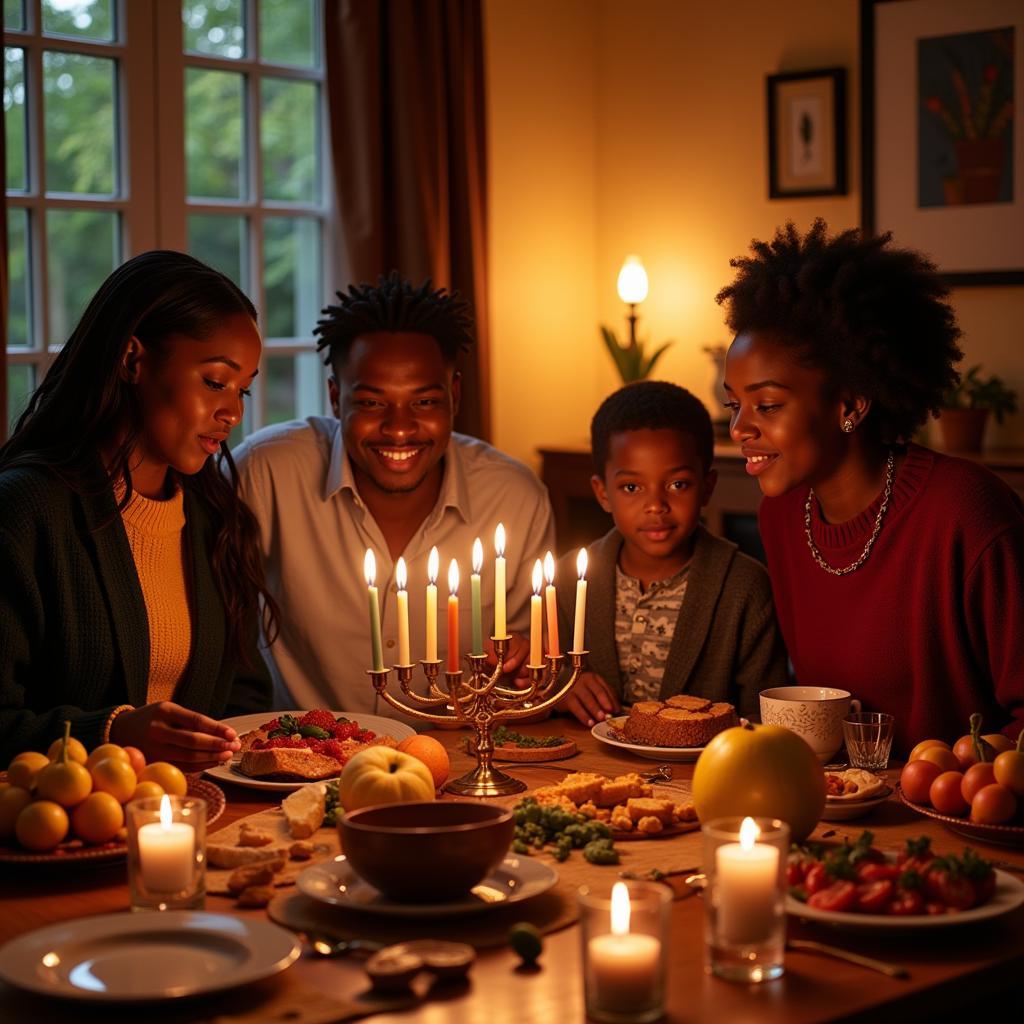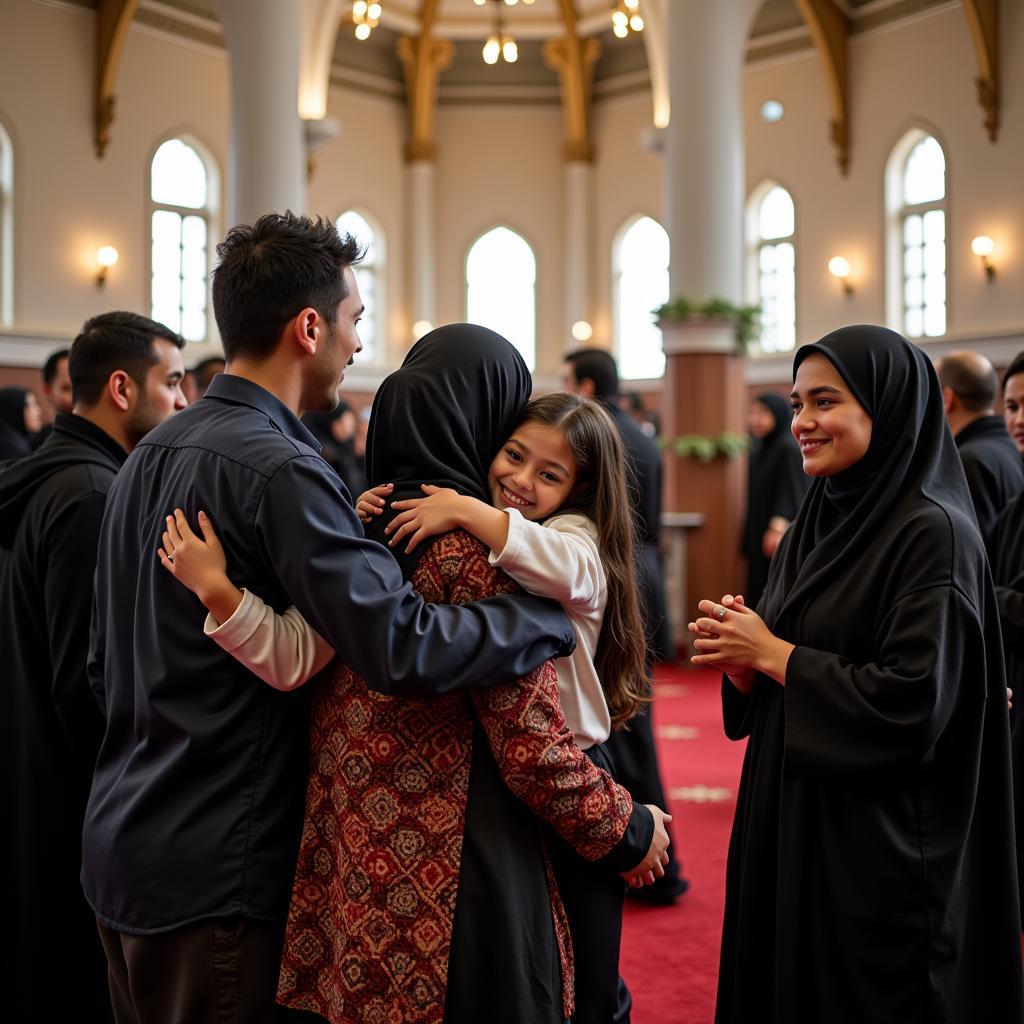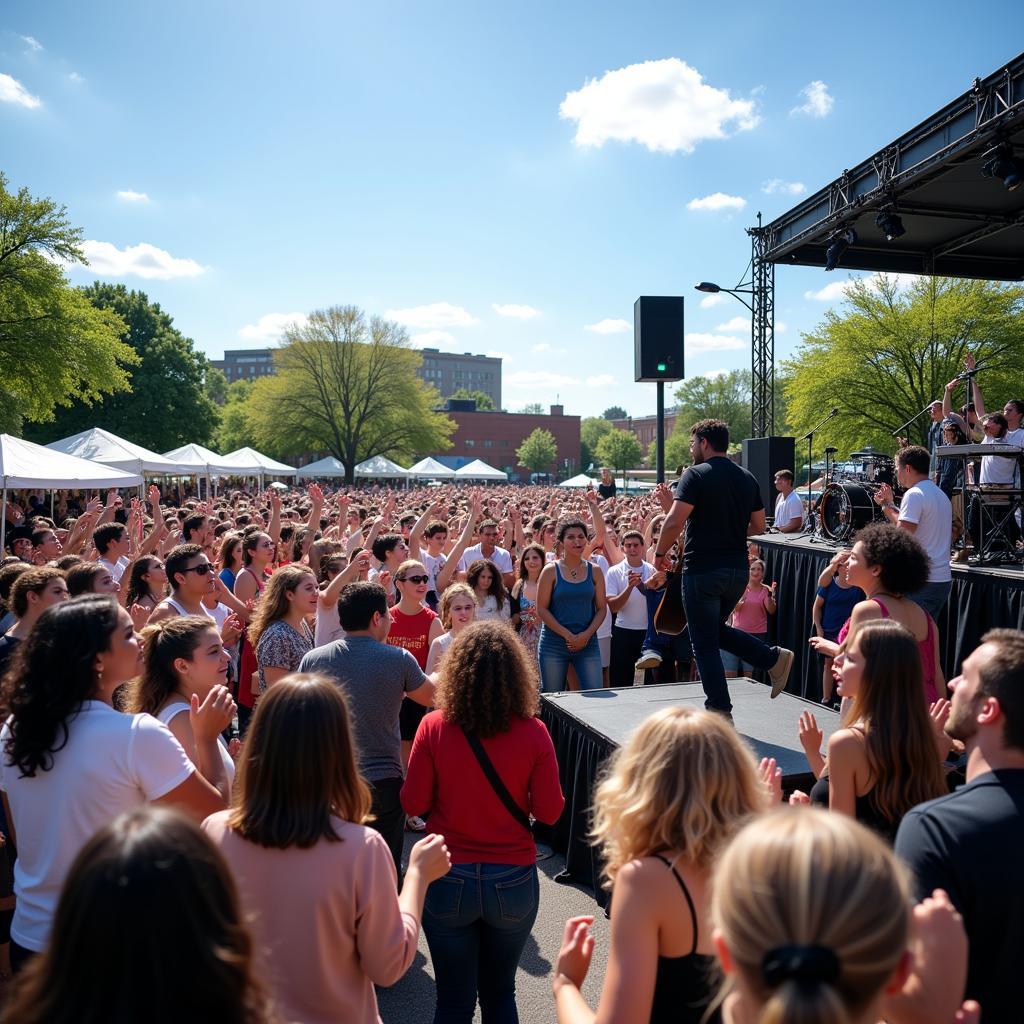African Holidays Celebrated in America
African Holidays Celebrated In America represent a vibrant tapestry of cultural heritage, tradition, and resilience. From the joyous rhythms of Kwanzaa to the spiritual reflection of Ramadan, these celebrations offer a glimpse into the rich diversity of the African diaspora and its enduring impact on American society. This article delves into the history, significance, and contemporary observance of these holidays, shedding light on their unique traditions, symbols, and meanings.
 Celebrating Kwanzaa in America
Celebrating Kwanzaa in America
Kwanzaa: A Celebration of African-American Heritage
Kwanzaa, a seven-day celebration of African-American heritage and culture, holds a special place among African holidays celebrated in America. Created in 1966 by Maulana Karenga, a professor and activist, Kwanzaa draws upon the traditions of various African harvest festivals. Observed from December 26th to January 1st, the holiday emphasizes seven core principles known as the Nguzo Saba, which include unity, self-determination, collective work and responsibility, cooperative economics, purpose, creativity, and faith.
During Kwanzaa, families and communities come together to light candles on the Kinara, a seven-branched candle holder, each representing one of the Nguzo Saba principles. The evenings are filled with storytelling, drumming, musical performances, and feasting on traditional African and African-American dishes. Kwanzaa gifts, often handmade or culturally significant, are exchanged to symbolize the values of self-reliance and cultural appreciation.
The Significance of Ramadan and Eid al-Fitr
Ramadan, the ninth month of the Islamic calendar, is a time of spiritual reflection, fasting, and prayer observed by Muslims worldwide, including a significant population within the African-American community. During this holy month, Muslims abstain from food and drink from dawn till dusk, engaging in increased prayer, acts of charity, and self-reflection. The observance of Ramadan fosters a sense of community and spiritual connection among Muslims, reminding them of the importance of empathy, gratitude, and compassion.
The end of Ramadan is marked by the joyous celebration of Eid al-Fitr, a time for feasting, family gatherings, and exchanging gifts. Muslims dress in their finest attire, attend special Eid prayers, and share meals with loved ones and those in need. Eid al-Fitr is a time of forgiveness, gratitude, and reflection, celebrating the completion of the spiritual journey undertaken during Ramadan.
 Eid al-Fitr Celebration in an American Mosque
Eid al-Fitr Celebration in an American Mosque
The Growing Recognition of Other African Holidays
Beyond Kwanzaa and the Islamic holidays of Ramadan and Eid, there’s a growing recognition and celebration of other African holidays in America. These include:
- Homowo (Ghana): This harvest festival celebrated by the Ga people of Ghana is a time for feasting, dancing, and offering thanks to the gods for a bountiful harvest.
- Timbuktu Manuscripts Festival (Mali): This festival celebrates the ancient city of Timbuktu and its vast collection of Islamic manuscripts, highlighting the rich intellectual and cultural heritage of Africa.
- Durga Puja (Ethiopia): This festival honors the Hindu goddess Durga and is a colorful celebration of good over evil, marked by elaborate processions, music, and dance.
The increasing awareness and celebration of these diverse holidays reflect the growing appreciation for the richness and diversity of African culture in America.
The Importance of Cultural Exchange and Understanding
The celebration of African holidays in America goes beyond mere festivities; it fosters cultural exchange, understanding, and appreciation. By participating in these celebrations, individuals from all backgrounds can learn about the history, values, and traditions of different African cultures. This cross-cultural exchange bridges divides, promotes inclusivity, and enriches the social fabric of American society.
african american cultural traditions serve as a powerful reminder of the resilience, creativity, and enduring spirit of the African diaspora. These celebrations offer an opportunity to connect with ancestral roots, instill cultural pride in younger generations, and foster a greater sense of belonging within the African-American community.
Conclusion
African holidays celebrated in America are a vibrant testament to the rich cultural tapestry of the nation. From the joyous celebrations of Kwanzaa to the spiritual reflections of Ramadan and the growing recognition of other African holidays, these observances offer a glimpse into the diverse traditions, values, and beliefs of the African diaspora. By embracing these celebrations, we foster cultural exchange, understanding, and appreciation, enriching the social fabric of American society and honoring the enduring legacy of African culture. As we continue to learn and celebrate together, we build bridges of understanding and create a more inclusive and vibrant future for all.

